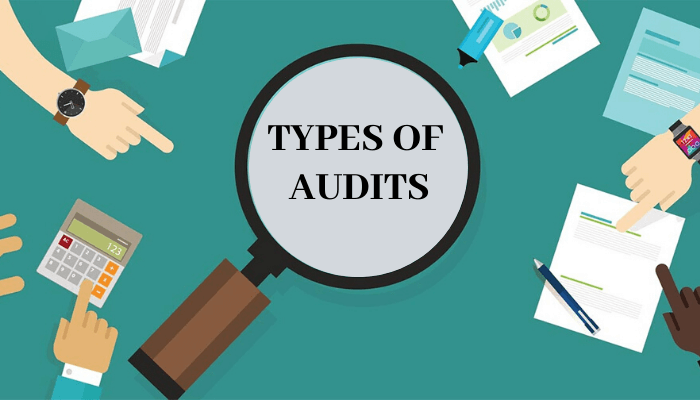
Auditing is a crucial process for businesses to assess their financial health, operational efficiency, and compliance with legal and regulatory requirements. By conducting audits, organizations can identify areas of improvement, detect risks and fraud, and ensure that their operations are running smoothly. While financial audits are commonly known, there are various other types of audit that can benefit businesses in different ways. In this article, we will explore 11 different types of audits that can help your business enhance its overall performance, mitigate risks, and achieve greater success.
Different Types of Audits
1. Financial Audit
A financial audit is the most well-known type of audit and focuses on verifying the accuracy and reliability of a company’s financial statements. Certified public accountants (CPAs) conduct financial audits to ensure that the financial information presented by the organization complies with generally accepted accounting principles (GAAP) or international financial reporting standards (IFRS). This audit provides stakeholders with assurance regarding the company’s financial health and helps maintain transparency and trust.
2. Internal Audit
Internal audits are conducted by internal auditors who are part of an organization’s internal audit department. The purpose of internal audits is to assess and evaluate the effectiveness of internal controls, risk management processes, and operational efficiency. Internal auditors review the organization’s processes, policies, and procedures to identify areas of improvement and ensure compliance with laws, regulations, and internal guidelines. These audits provide valuable insights for management to enhance operations and mitigate risks.
3. Compliance Audit
A compliance audit focuses on assessing whether an organization adheres to applicable laws, regulations, and industry standards. It ensures that the company operates within legal boundaries and meets the requirements set by regulatory bodies. Compliance audits cover areas such as data protection, workplace safety, environmental regulations, financial regulations, and more. By conducting compliance audits, businesses can identify any areas of non-compliance and take corrective actions to avoid legal consequences.
4. Operational Audit
Operational audits aim to evaluate the efficiency and effectiveness of an organization’s operations. These audits assess the processes, systems, and procedures in place to identify opportunities for improvement, cost savings, and enhanced productivity. Operational audits often involve analyzing key performance indicators (KPIs), reviewing workflows, assessing resource allocation, and benchmarking against industry standards. By conducting operational audits, businesses can optimize their operations, reduce inefficiencies, and improve overall performance.
5. Information Technology (IT) Audit
IT audits focus on evaluating an organization’s IT systems, infrastructure, and data security measures. These audits assess the reliability and security of IT systems, including hardware, software, networks, and databases. IT auditors analyze controls, data backups, access controls, and vulnerability assessments to identify any weaknesses or potential risks. By conducting IT audits, businesses can ensure the integrity and confidentiality of their data, safeguard against cyber threats, and maintain compliance with IT regulations.
6. Tax Audit
A tax audit is conducted to review and validate a company’s tax return filings. Tax authorities may conduct tax audits to ensure that businesses have accurately reported their income, expenses, deductions, and compliance with tax laws. Tax audits aim to identify any discrepancies or irregularities in tax filings and may result in adjustments, penalties, or further investigations. Businesses can proactively conduct internal tax audits to ensure accurate tax reporting, minimize risks, and maintain compliance with tax laws.
7. Quality Audit
Quality audits focus on assessing the effectiveness of an organization’s quality management systems. These audits evaluate whether the company’s products or services meet predetermined quality standards and customer requirements. Quality audits often involve reviewing documentation, procedures, quality control processes, and customer feedback. By conducting quality audits, businesses can ensure consistent quality, identify areas for improvement, and enhance customer satisfaction.
8. Environmental Audit
Environmental audits evaluate an organization’s environmental performance and compliance with environmental regulations and sustainability practices. These audits assess the company’s impact on the environment, including energy consumption, waste management, pollution control, and adherence to environmental policies. Environmental audits help businesses identify opportunities to reduce their environmental footprint, implement sustainable practices, and demonstrate corporate social responsibility.
9. Health and Safety Audit
Health and safety audits focus on evaluating an organization’s workplace safety practices and compliance with occupational health and safety regulations. These audits assess workplace conditions, safety protocols, emergency preparedness, and employee training. By conducting health and safety audits, businesses can ensure a safe working environment for their employees, reduce the risk of accidents and injuries, and avoid potential legal liabilities.
10. Supplier Audit
Supplier audits assess the performance and reliability of the company’s suppliers and vendors. These audits evaluate the supplier’s ability to meet quality standards, delivery timelines, and contractual obligations. Supplier audits help businesses identify potential risks in the supply chain, ensure product quality, and maintain strong relationships with suppliers.
11. Social Compliance Audit
Social compliance audits focus on evaluating a company’s adherence to social and ethical standards in its business operations, particularly concerning labor practices, human rights, and ethical sourcing. These audits assess factors such as fair labor practices, working conditions, child labor prevention, and anti-discrimination policies. Social compliance audits help businesses demonstrate ethical practices, build trust with consumers, and align with international social responsibility standards.
Conclusion
Conducting various types of audit is essential for businesses to ensure transparency, compliance, efficiency, and sustainable growth. Each type of audit serves a specific purpose, providing valuable insights into different aspects of the organization’s operations and performance. From financial audits that verify the accuracy of financial statements to social compliance audits that assess ethical practices, each audit type plays a crucial role in enhancing the overall functioning of the business. By utilizing these audits effectively, businesses can identify opportunities for improvement, mitigate risks, and build a strong foundation for long-term success.





